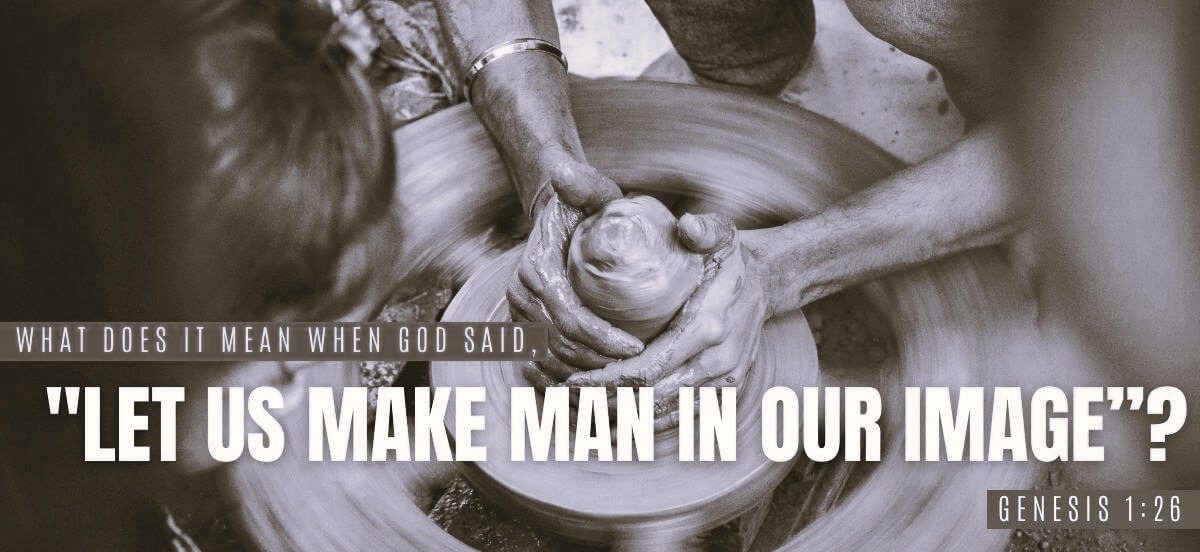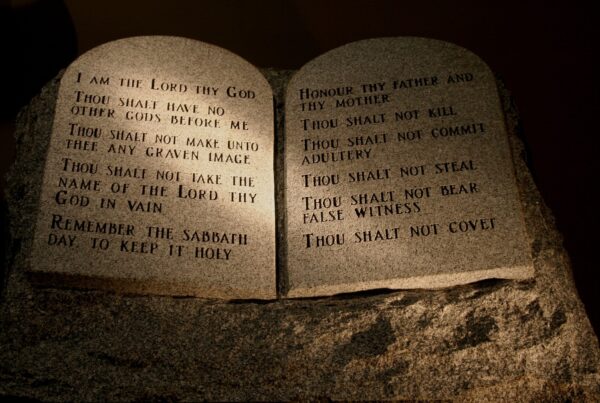Today’s scripture passage, Genesis 1:26, declares: Then God said, “Let us make man in our image, according to our likeness.” This verse often raises the question: To whom is God speaking? Could this be a reference to the trinity? To gain deeper understanding let us carefully examine the biblical context and explore the true meaning of God’s Word.
The Bible consistently affirms that God is one. Deuteronomy 4:35 declares, “The Lord, He is God; there is no other besides Him.” Deuteronomy 6:4 reinforces this truth: “Hear, O Israel: The Lord our God, the Lord is one!” Similarly, in Mark 12:29, Jesus emphasized the same foundational truth: “The first of all the commandments is: ‘Hear, O Israel, the Lord our God, the Lord is one.’”
James 2:19 adds, “You believe that God is one; you do well. Even the demons believe—and shudder!” This verse highlights that even the demonic realm recognizes the singularity of God. Furthermore, Malachi 2:10 clearly states, “Do we not all have one Father? Did not one God create us?” These passages, along with many others, affirm that God is unequivocally one.
Given the clarity of Scripture on this matter, Genesis 1:26 cannot be interpreted as a reference to the Trinity. The doctrine of the Trinity asserts that God exists as three distinct persons: Father, Son, and Holy Spirit. However, if God were three distinct persons, this would seemingly contradict the overwhelming scriptural evidence affirming His oneness.
Even in Revelation 4:2, where John describes his vision of heaven, he writes, “Behold, a throne set in heaven, and One sat on the throne.” Nowhere in the Bible does it state that God is three distinct persons, nor does the term “Trinity” appear. In contrast, the Bible explicitly declares God’s oneness. Instead, God manifests Himself in different ways—Father in creation, Son in redemption, and Holy Spirit in regeneration and activity. This aligns with 1 Timothy 3:16, which states, “God was manifested in the flesh.”
The Context of Genesis 1:26
To understand Genesis 1:26, we must consider the broader context. In Genesis 1:1-25, God single-handedly creates light, the heavens, the earth, animals, the moon, the stars, and more. When we reach verse 26, the text states, “Let Us make man in Our image, according to Our likeness.” However, verse 27 immediately clarifies, “So God created man in His own image; in the image of God He created him; male and female He created them.”
Isaiah 44:24 affirms God’s singular role as Creator: “Thus says the Lord, your Redeemer, and He who formed you from the womb: ‘I am the Lord, who makes all things, who stretches out the heavens alone, who spreads out the earth by Myself.'” This verse highlights that God alone created everything, including humanity, reinforcing that the “Us” in Genesis 1:26 cannot refer to other beings.
The Counsel of God
The phrase “Let Us” likely reflects God’s counsel within Himself. Scripture demonstrates that God often deliberates within His divine will. For example, Ephesians 1:11 states, “In Him also we have obtained an inheritance, being predestined according to the purpose of Him who works all things according to the counsel of His will.”
This concept of God counseling within Himself aligns with His self-sufficiency. Isaiah 40:13-14 asks, “Who has directed the Spirit of the Lord, or as His counselor has taught Him?” Similarly, Isaiah 46:9-10 declares, “For I am God, and there is no other; I am God, and there is none like Me, declaring the end from the beginning, and from ancient times things that are not yet done.”
God’s decisions stem from His own wisdom and purpose, not from external consultation. For instance, when we speak to ourselves—deliberating or reasoning—we may use terms like “let’s” or “us.” This does not imply the presence of multiple persons but reflects internal dialogue. In the same way, Genesis 1:26 reflects God’s divine deliberation.
Addressing Alternative Views
Some may argue that God was addressing the angels. However, Psalm 33:6 explains that God created the angels—the host of heaven—by the breath of His mouth. Since angels are created beings, they could not have been involved in the act of creation. God alone is the Creator, as affirmed throughout Scripture.
Conclusion
In conclusion, Genesis 1:26 does not indicate a plurality of persons within the Godhead but rather reflects God’s counsel within Himself. The Bible is clear: there is only one God who created humanity in His image, according to His will and purpose. His decisions are informed by His own infinite wisdom, and His works are carried out by His power alone.
By examining the context and supporting scriptures, we see that the “Us” in Genesis 1:26 points to the self-sufficiency and divine counsel of the one true God.




